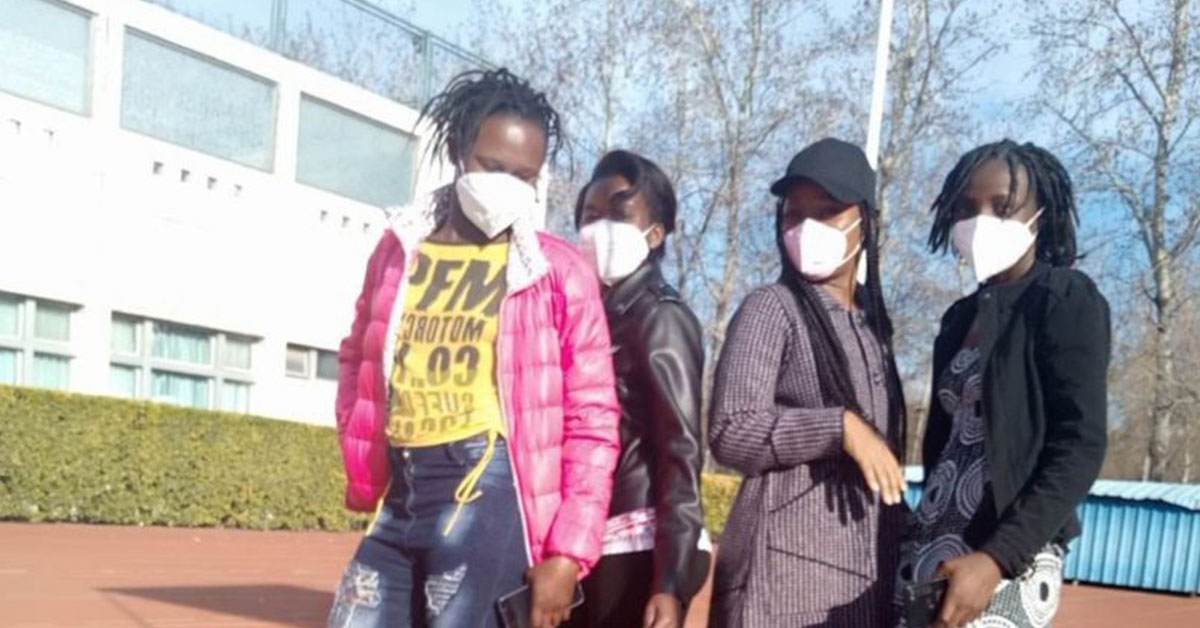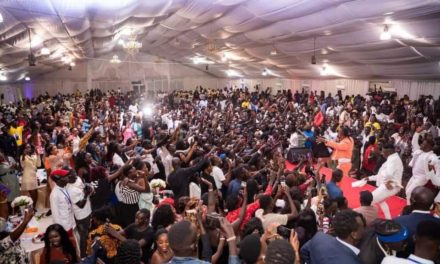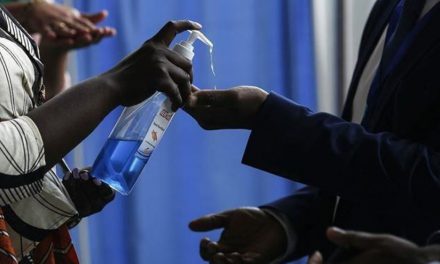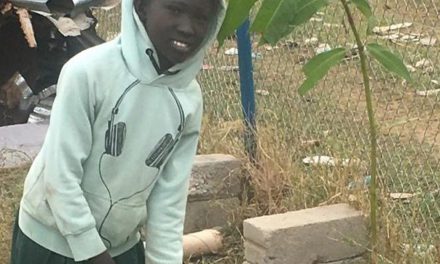
Keeping Strong Despite Corona virus Pandemic

A story of a South Sudanese student trapped in Beijing, China by the COVID-19 Pandemic
By Viola Matela
Beijing – China
Waking up on the 17th of January, 2020 merely a day into my spring holiday at China Women’s University, bore no promise of the gloom that lay ahead. However, that was the day I started seeing video clips trending on the wechat app, China’s main social media app, about the outbreak that later would become the world’s deadliest pandemic, the coronavirus or COVID-19 as it is officially called.
Our worst fears were confirmed when the Chines National Health Commission informed the World Health Organisation – WHO about a pneumonia-like outbreak in Wuhan, Hebei Province of China on 31 Dec 2019. Soon afterwards, the genetic sequence of the virus was made public by mid of January 2020, facilitating the development of test kits, precaution measures and reference material.
I who had been simply happy to spend most of my time sleeping that weekend knowing I had lots of tourist sites to visit the coming week could not believe it. I kept on telling myself all would be alright within a few days. However by Sunday January 19th, fear was fast taking its grip on my schoolmates whom I had planned to go site seeing with. One of them cautioned, “Matela, we can’t go to the zoo anymore. The virus is said to be spreading from animals to humans. Besides, they might have closed.” It was a surprise. We only realized later that the coronavirus was instead spreading from humans to humans.
Convincing her took time and she finally came around and we made the long awaited trip on Wednesday January 22nd morning on condition that I give her a surgical mask to wear. Lucky enough, I had some I had bought earlier in November to wear when the air was not healthy enough.
That was not the only setback, we made the trip with only four members, two others from another university having shied away for fear of contracting the disease.
The rest of that week saw lots of stringent safety measures being taken by the Chinese government. Those who had made lots of outdoor plans started self-censoring and avoiding going out. Throughout that long dreadful week, public places like cinemas, leisure parks and other recreational centres were slowly shutting down.
All throughout WeChat, precautionary measures were being sent out: avoid public gatherings, wear a mask if you must go out, wash hands thoroughly with soap or detergent, do not touch your eyes, nose and mouth, to mention but a few.
We kept hoping we would at least make it to Church that weekend because we were ending our 21-day fast. This too did not happen. The Church sent out notifications via wechat that we would not meet physically that Sunday, January 26th. Instead, they quickly organised and we managed to attend our first online service that day.
That night, our school authorities made an announcement that we could no longer go out of the premises neither could we receive visitors. Suddenly, everyone was canceling trips they had planned to take months ago within and outside the country. The Coronavirus outbreak was slowly taking its toll on us all.
The government was encouraging people to cancel their bookings and telling travel agents to refund people’s money back without penalizing them. More and more businesses, which had not closed for the Chinese New Year, continued to shut down as people started living in fear of contracting the pandemic that they knew had no cure to begin with.
Wuhan, the epicentre of the outbreak soon entered a complete lock-down phase: no private cars, planes, trains or public buses were allowed to enter or leave the Central Chinese capital of Hubei province. Even the means of transport within were under heavy restrictions.
By end of January, my school following a directive from the Chinese Ministry of Education had already declared that our university which was meant to resume the Spring Semester on February 22nd, 2020 would not be opening until further notice. The same message was sent to our colleagues who had traveled to their home countries for Christmas but with an extension that they should not return to China before the school contacted them to return.
A few of my colleagues had the unfortunate luck of traveling to Guangzhou before the every Chinese city started restricting inter-provincial movements. Upon arrival, they were immediately quarantined in their private rooms for two entire weeks. These however seemed like 140 days to them. It meant their meals and other packages were only brought to their doorstep and the door knocked for them to collect their necessities.
On top of that, they had to submit their temperature readings thrice a day and slowly, the ladies were getting overwhelmed. One of them confessed at the end of the isolation period, “I feel like I have been in prison. All I had was my bed and washroom if I was tired of the bed.”
The general school isolation on the other hand simply meant we, about 30 international students from different parts of the world, would be served meals from the school canteen instead of buying our own groceries and cooking. The canteen which had closed for holidays had to resume work with a few attendants to serve us.
We soon pleaded with our school to let the cooks bring other fresh foods and personal items we needed which we would buy from them and this was organised. The only trouble was price had not only tripled but even quantities being sold expensively were reduced. For example, a cluster of 5 bananas which was usually 3 Chinese yuan was now ranging between 13-19 yuan.
The administration continued to be concerned of our health and strove to find us masks, gloves, disinfectant and clinical wipes which were a rare resource then. Such acts of kindness enabled us save a few coins to help us do other purchases.
I could not believe what was going on around me. I kept wondering why this was happening now when I am in this foreign country? Well, no one knows their tomorrow apart from the holder of tomorrow, God! It took a lot of self-determination on each individual’s part to keep from drifting into depression out of the uncertainty about what the next day would be like.
I was not alone. Many of my colleagues were constantly saying “We are tired God, have mercy on China and let life go back to normal.”
Phone calls from worried loved ones back home were not reassuring either. You had to find means to keep your heart and mind constantly focused on things that encourage than negatively influence your flow of thoughts. In most cases, we had to reassure our loved ones that we were alright.
To our utter dismay, everywhere we looked, we were surrounded by messages like “Because of the epidemic, your express delivery will be delayed due to the outbreak.”
Following the news on CGTN, the Chinese Global Television Network only served to aggravate our fears even further instead of helping us cope, there were daily reports of new confirmed cases and deaths which was unmatched to the few people who recovered since they were very few. To shield ourselves from the trauma of too many reports of confirmed cases and lives lost to the wretched COVID-19, we had to purposely avoid downloading every video we received on social media.
One of my friends earnestly vowed, “I am going to stay away from social media this entire week because I’m so tired of opening videos on my phone only speaking about coronavirus. It’s like COVID19 is all there is. Can’t people talk about something else?”
Those of us who could handle, chose what we could consume out of the too much information and discarded the rest. You will not believe the amount of fake news that we battled against though. Most of these were coming from sources outside China but rising the hairs on the back of anyone who read them.
I remember an occasion where someone shared one such kind of fabricated story on a whatsapp group that I am on. I tried to ignore it but something kept nudging at me to speak up. When I finally did, my words calmed dozens of people and some even shared the soothing message on other platforms to reassure those with loved ones in China. If I were to write about all the scary stories that were making the rounds during this time, I don’t know when I would finish.
Never in my whole adult life have I looked forward to attending lectures like my colleagues and I did during this lockdown period. One could not move out of the school premises. We rarely came out of our dormitories. While in our private rooms, our daily routines became very predictable; eat, watch and sleep. This soon became passive as sleeping patterns were interfered with. Sometimes I gave up the fight to remain awake by taking pity on my body around 4:00 AM or 5:00 AM but some friends insisted that was still early. “Do you know I watch series until 8 O’clock in the morning on some days due to lack of sleep?”
It soon became apparent that my passion for movies was either slowly fading away or it had been satisfied. I resorted to reading books on different topics and physical exercises especially on yoga and rope skipping. Those two became my other daily companions. Some good friends even shared books predicting about the coronavirus as early as 1970s and early 2000s. These like all other activities I was engaging in only fed a certain part of me and from my sub-consciousness, I realized that on some days, I was deeply concerned about the situation we were in.
Some African governments were making arrangements to evacuate their citizens out of Wuhan and other Chinese cities. Others who couldn’t afford evacuation sent financial support to their students in Wuhan but I knew no one would do the same for me or many of my other colleagues. Then I kept building myself in the Lord. To me, “God is not a liar. He is too faithful to disappoint or leave you halfway.” Some friends kept sharing good Christian music that I listened to and felt reassured that this dark moment too shall pass and a bright day shall come like the Bible says, “Mourning may endure for the night but joy comes in the morning.”
By February 1st all pastors within China had organised themselves and were releasing a daily devotion dubbed the “Novel Encouragement” to keep our hope intact during these tough times. As we continued to pray, we were encouraged to send feedback, record an encouraging message or make a donation towards fighting the virus.
In mid-February, the school availed each student in my school, China Women’s University, a thermometer to take daily readings of our temperatures and submit them by 1:00 PM. But sometimes some of us slept till late into the afternoon and forgot to submit our temperatures. Then finally, one of our biggest prayers was answered. We started lectures via different on-line platforms. Slowly though, businesses and work resumed around Beijing and the end of coronavirus seemed to be drawing close each day.
This period has however had some benefits to it like having more time to speak with friends and family who used to compete for time in our previous busy schedules. It drew me even closer to some acquaintances whom I never imagined would be that close with me. I doubt this would have ever happened had the virus outbreak not interrupted our normal schedules. All in all, I remain hopeful now that there are reports that a possible human vaccine against the virus could be available for testing by the end of April this year.
My friends and I keep joking about what we would do first the day we get news that we can go out of school and live normally like we used to. One tells me, “I will be leaving school every Friday after lectures and you will only see me on Monday in the class.” What wouldn’t we give to see an end to this strenuous time of our lives? My hope is that we shall come out of this and tell about the experience plus the lessons we have learned out of it.


























Recent Comments